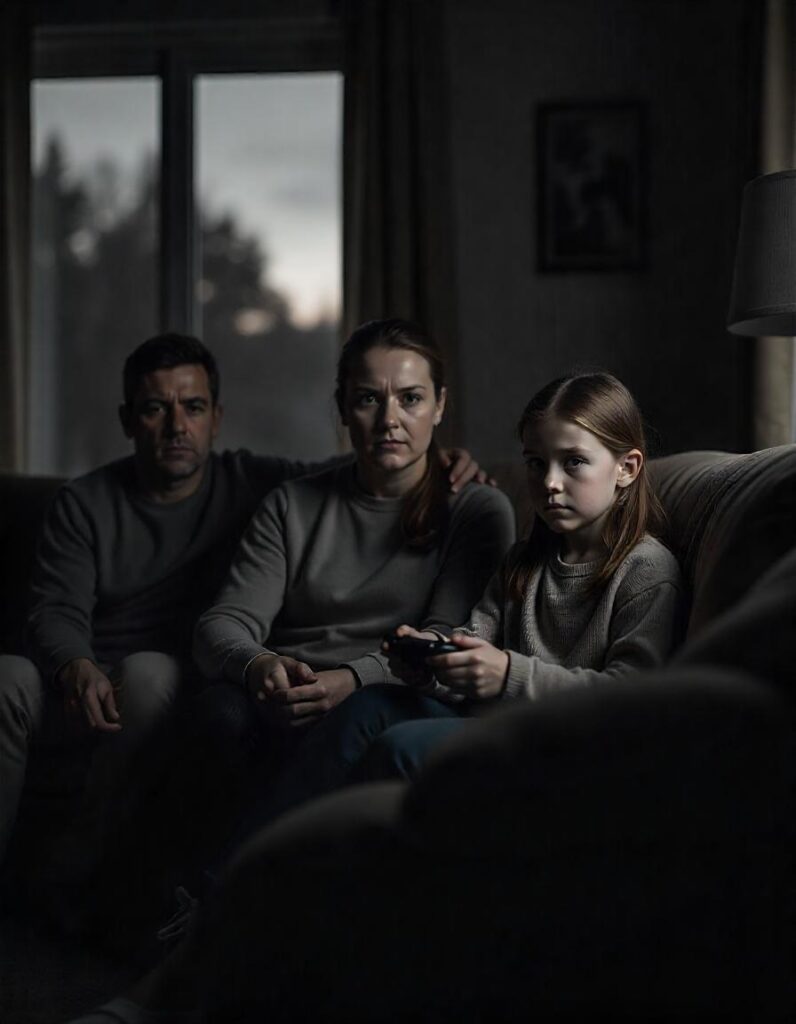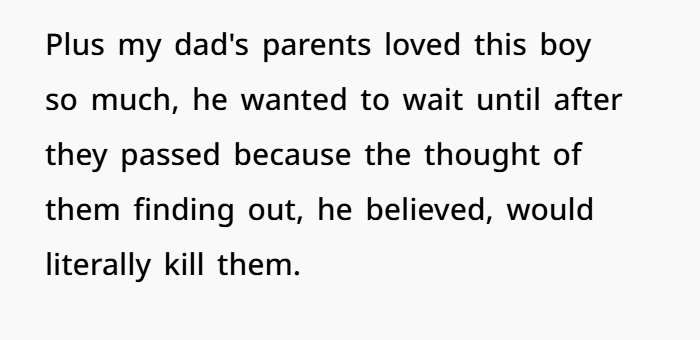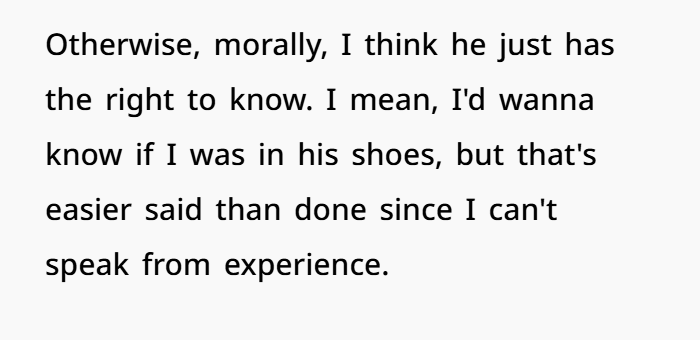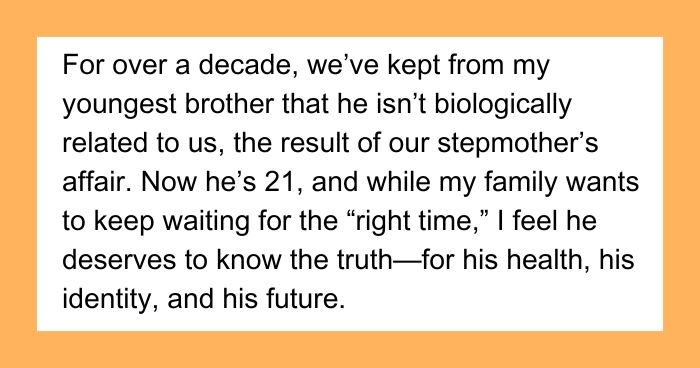‘Am I wrong for wanting to reveal the ‘family secret’ that my baby brother isn’t really our brother?’
You (32M) find yourself conflicted about the fact that your youngest brother (21M) has yet to be informed that he is not, in fact, actually yours biologically. He was your full brother, despite being born from your father’s second wife’s adultery. When your brother was 8 or so your father found out by an anonymous DNA test, but he kept the secret so he could keep custody and maybe save his son and his own parents a little misery. Fast forward to a decade later, your baby brother is living on his own and you feel he is busy in his life, has the right to know the truth, and even more so for health reasons, but your father and other siblings say the right time is never right.
Your dad says your brother is proud of the family history, and exposing the truth could destroy his character. Your siblings all agree he should know, but they want you to wait until everyone can be there in person to support him—that will be in years to come since the family is so spread out. Your annoyance comes from a simple realization: this truth has been silenced for long enough and you have a duty to promote frankness. But you also know that it is not your place to put it out there alone, and want to have a unified approach.
Read for more info Reddit






























Here were the top rated comments from readers in response to the OP’s post:
What you present here is one of the most personal and ethical dilemma ഡ്രപ്പ്. And research suggests that secrets about identity — particularly those held within families across generations — can carry psychological ramifications of their own. Dr. Evan Imber-Black, a researcher who has studied family secrets for decades, tells The Atlantic that concealing something meaningful can create unintended repercussions — particularly when the truth is certain. Those who realize in adulthood that their biological parent is someone else tend to feel betrayed, lose some of their identity, and are suspicious of the person who kept the information from them. On the other hand, research suggests that secrecy has a similarly destructive effect when revealed without the right support (kittiness).
In addition, medical ethics likewise slant toward disclosure. Accurate family health history is crucial for risk assessments for conditions such as cancer, heart disease, and neurodegenerative disorders, according to the American Society of Human Genetics. Misdiagnoses based on the wrong ancestry are a real concern and you are right to be worried!
Yes, it makes sense that your father and siblings are reluctant, they do not want to hurt your baby brother emotionally. The timing could never be just right – and therein lies the problem. If he finds out later from someone else (like from a DNA test or from an extended family member who slips), the betrayal might hurt worse. You will find similar people who say their preference would have been to hear the truth from those close to them than to discover it personally.





And you are right that he should know but the method of this revelation counts. You are already ahead of the game, however, by arguing against dropping the bomb alone, instead for a show of solidarity. A family meeting — you can do it in-person or virtually — would give your brother an idea that he is supported and not ambushed. Because this conversation is very personal, it might be best to seek out a family therapist who specializes in adoption or non-paternity situations. They would assist in traversing floodwaters of emotion and in preparing for collateral damage.
If your father simply refuses to be the one to tell him, then you and your brothers and sisters may have to take the reins. If you determine that you need to tell him, then the right way to frame the truth is in a way that is empathetic and gentle: remind him that DNA does not change the love you share and the bond you have built, but that he deserves this truth for his own sake.
After all, patience is a virtue, but too much avoidance is toxic. Wanting honesty is not selfish — you are valuing your brother more than requiring a lie, he does have the right to know who he is. The issue is when the truth comes out, that the truth is treated with love, tenderness, support.
Or is there room to push your siblings toward some sort of plan so that neither of you is waiting forever?

